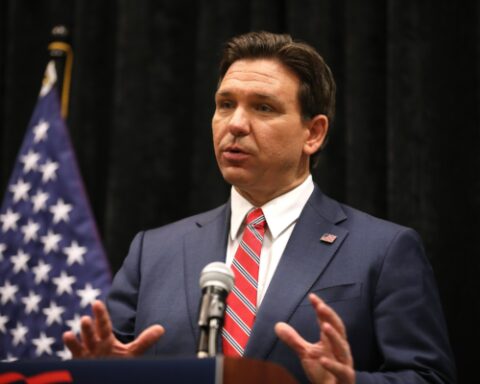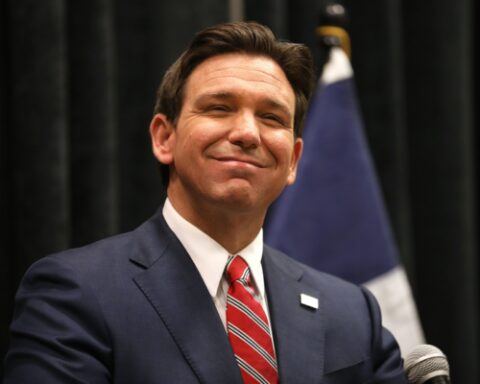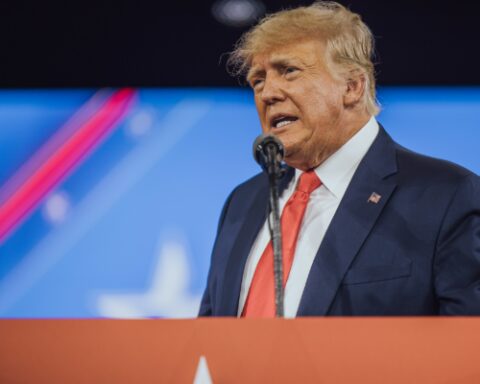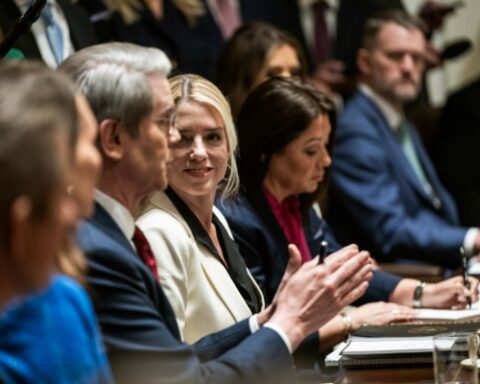In an unexpected warning aimed at one of his former allies, Florida Governor Ron DeSantis on Monday reportedly urged Elon Musk to rethink his plans for a third-party bid, arguing that splitting the Republican vote would benefit Democrats.
Mr. Musk, the billionaire CEO of Tesla and SpaceX, recently announced the creation of the “America Party,” signaling his disillusionment with both major parties—particularly following disagreements with President Trump over a sweeping fiscal and tax bill.
The announcement represented a dramatic escalation in Mr. Musk’s political engagement, marking a bold, if controversial, play to disrupt American politics.
Responding to this announcement at a Jacksonville press event, Gov. DeSantis acknowledged Mr. Musk’s innovation and influence, expressing gratitude for his previous support of Republican causes.
He notably credited Mr. Musk’s work in exposing federal inefficiencies through his short-lived Department of Government Efficiency and for contributing to the Trump campaign’s 2024 momentum.
“I think Washington needs a total overhaul,” Mr. DeSantis stated. “But a third party is not the way to do it.” He warned that fielding candidates in competitive races would have the unintended effect of aiding Democrats: “If he funds Senate or House candidates in those races, that likely means Democrats win.”
Instead of diverting support, Mr. DeSantis urged Mr. Musk to channel his resources into structural reforms—most notably, advocating for a balanced-budget amendment and congressional term limits through the Article V convention process, bypassing Congress altogether. “These amendments would be monumental,” he said, depicting them as a more effective path to political transformation than third-party candidacies.
The governor’s comments reflect broader concerns among Republican strategists: historical barriers have made third-party ventures exceedingly difficult.
Experts estimate that building a viable national party could take over a billion dollars and a decade’s commitment, with no guarantee of success—or representation.
Mr. Musk’s initiative comes amid mounting frustration with traditional party politics, especially from voters disenchanted by soaring federal debt and legislative gridlock. Still, his sudden pivot has triggered uneven reactions.
While some praise his willingness to challenge the status quo, others have faulted him for dividing conservative ranks.
In recent days, President Trump called the move “ridiculous,” warning that third parties have “never worked.”
Meanwhile, analysts caution that Mr. Musk’s bold gambit risks functioning as a spoiler, potentially swinging tight races toward Democrats—especially in the critical 2026 midterms.
Yet Mr. Musk has indicated that his strategy will initially concentrate on a handful of congressional seats. Whether he ultimately targets the presidency remains unclear.
Regardless, his political emergence continues to unsettle traditional Republican lines—forcing a reckoning over whether systemic overhaul requires a new party or renewed discipline within the existing one.
[READ MORE: Trump Admin Moves to End Invasive Airport Screening Method]








